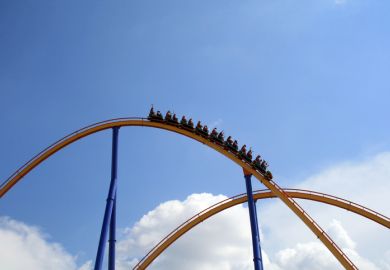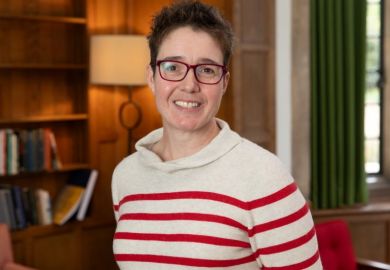UNITED STATES
Science funding fails to keep pace
Federal spending on science research in the US is rising at a rate lower than inflation, according to a new report by the National Science Foundation. Science and Engineering Indicators 2008 warns that the funding situation, coupled with the rise of science and technology expertise in China and India, poses a threat to US dominance of the sector. However, although younger academics are reported to be finding it harder to win grants, the study suggests that funding for those who already have doctorates is relatively stable. About half of doctorate holders working in academic research received federal financing in 2006, the same proportion as in the late 1980s.
CANADA
Graduates drive job growth
The number of people educated to degree level is key to the buoyancy of the job market in Canadian and US cities, a new study shows. A Statistics Canada report found that employment in science and engineering sectors grew faster in cities with more graduates, even those in non-related fields. Based on census data taken between 1980 and 2000, the study found that average workforce growth in 242 North American cities was 1.8 per cent a year. But, CBC News reported, those with a "relatively high proportion" of graduates saw a growth of 2 per cent, compared with just 1.6 per cent in cities where the graduate population was smaller.
AUSTRALIA
Free-speech charter for scientists
Scientists in Australia are to get a charter guaranteeing their right to take part in contentious debates linked to their research fields. Kim Carr, the Minister for Innovation, Industry, Science and Research, will consult bodies over the new charter this year, The Australian newspaper reports. The pledge follows claims that scientists were barred from commenting on reports last month that research agencies had to get government clearance before they could speak to the media. Senator Carr said that the charter would "enshrine not only the right but the obligation of scientists and other researchers to participate in public research debates". However, he added that agencies must acknowledge that the Government is responsible for "the articulation, formulation and implementation"of government policy.
UNITED STATES
Yale boosts aid to students
Yale University has increased financial aid for undergraduates from families with incomes of up to $200,000 (£101,000) a year. The university, which has a $22.5 billion million) endowment, indicated that fees paid by students receiving aid would fall by 50 per cent on average, The New York Times reports. The changes will come into effect this autumn, with spending on student aid set to rise by $24 million a year to more than $80 million. Richard C. Levin, Yale's president, said: "I hope this will send a strong message to people with incomes between $45,000 and $200,000, some of whom ... perceive our sticker price as very daunting, that Yale does offer help at that range." Last month, Harvard University announced a similar aid expansion aimed at cutting college costs to 10 per cent of income for a family earning $120,000 to $180,000 a year.
VIETNAM
Education drive gets cash boost
Major state investment will boost the state's target of more than doubling the number of students in higher education. The Government has approved a new education programme that will see investment of $1.3 billion (£660 million) by 2010, according to the Vietnam Economic Times. The country currently has 1.5 million students in higher education, equivalent to 181 per 10,000 of the population, and the Government has set ambitious targets to increase that figure. It hopes to see 200 students per 10,000 in tertiary education by 2010, 300 by 2015 and 450 by 2020.
CHINA
Patent rights for researchers
Scientists, institutes and universities in China are now free to own patents arising from publicly funded research under moves designed to boost innovation. Chemistry World reports that the Government has revised legislation to provide incentives for academics and universities to license inventions.
Register to continue
Why register?
- Registration is free and only takes a moment
- Once registered, you can read 3 articles a month
- Sign up for our newsletter
Subscribe
Or subscribe for unlimited access to:
- Unlimited access to news, views, insights & reviews
- Digital editions
- Digital access to THE’s university and college rankings analysis
Already registered or a current subscriber? Login



